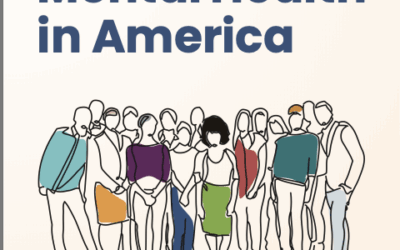I would like to preface this blog post by mentioning that I am not a person with lived experience with a compromised immune system or condition that puts me in the vulnerable population of contracting COVID-19. I am writing this as an ally to the high-risk community, including: immunocompromised folks, cancer patients, smokers, people with chronic illnesses, people with disabilities, and others at-risk of COVID-19.
Additionally, I recognize that racial and socioeconomic disparities in healthcare have played a role in the spread of COVID-19, as a New York Times interactive map shows. Additional populations that are especially vulnerable to COVID-19 include people experiencing homelessness, pregnant and breastfeeding people, people with disabilities, and people with behavioral and developmental disorders.
I went into detail on racial disparities in healthcare and social determinants of health on one of my previous MHAV blog posts. The study, “The Fullest Look Yet at the Racial Inequity of Coronavirus,” by Richard A. Oppel Jr., Robert Gebeloff, K.K. Rebecca Lai, Will Wright, and Mitch Smith, published this past weekend, shows: “Black and Latino people have been nearly twice as likely to die from the virus as white people.” The data is shown in the graph below and in the article published on July 5th, 2020.
Along with the risks that communities of color face from contracting the virus are the additional challenges high-risk and immunocompromised people endure daily and upon the onset of COVID-19. As defined by the CDC, the populations most vulnerable to severe illness from COVID-19 include:
- Older adults
- People with these underlying health conditions are at increased risk:
- Chronic kidney disease
- COPD (chronic obstructive pulmonary disease)
- Immunocompromised state (weakened immune system) from solid organ transplant
- Obesity (body mass index [BMI] of 30 or higher)
- Serious heart conditions, such as heart failure, coronary artery disease, or cardiomyopathies
- Sickle cell disease
- Type 2 diabetes mellitus
- People with these underlying health conditions might be at increased risk:
- Asthma (moderate-to-severe)
- Cerebrovascular disease (affects blood vessels and blood supply to the brain)
- Cystic fibrosis
- Hypertension or high blood pressure
- Immunocompromised state (weakened immune system) from:
- Blood or bone marrow transplant
- Immune deficiencies
- HIV
- Use of corticosteroids
- Use of other immune weakening medicines
- Neurologic conditions, such as dementia
- Liver disease
- Pregnancy
- Pulmonary fibrosis (having damaged or scarred lung tissues)
- Smoking
- Thalassemia (a type of blood disorder)
- Type 1 diabetes mellitus
The evidence behind these lists are updated by the CDC regularly as new data comes out about this novel virus. For the people who fall in these high-risk categories, social distancing and isolation are of utmost importance. Due to underlying risk factors, we cannot always predict who will survive the virus and who will become critically―or potentially fatally―ill.
As I’ve focused much of this blog on how COVID-19 has impacted college students, I would like to hone in on that same population for this post. That being said, much of the high-risk population (e.g., older and elderly adults, pregnant people, etc.) are not necessarily college-aged folks. However, I want to take the time to consider the financial, physical, mental, and social implications of college students in high-risk categories.
Among the mental health implications of staying in isolation this past spring semester, if colleges reopen in the fall at full capacity as planned, many high-risk students will be put in a position where they cannot return to college or have online class be an option. For my school, the University of Richmond, at this point, students who choose to reside at home will not be considered students or given the option to telecommute. Therefore, for students with underlying health conditions or situations where they do not feel safe living in a campus community, they will not have the opportunity to stay on track with online classes. (There is a petition to make telecommuting an option for fall 2020 at UR here!)
In addition to the vast mental health and safety risks for some students living at home, this population of students will not even have the opportunity to take classes, if that is what they desired to do. That being said, if colleges transition to remote learning, many institutions are keeping tuition fees the same. Despite the shortcomings of online learning, Harvard and other universities have switched to online courses and kept tuition (excluding room, board, and food costs) the same or reduced by a small percentage. Harvard has When the college student population has paid tuition fees and earned financial aid to attend a university in-person, institutions will be charging students for the cost of the in-person academic experience. As the country is experiencing a financial crisis due to COVID-19 and many students’ families’ incomes have shifted drastically, these institutions are turning a blind eye to these issues.
Students who are at high-risk of severe illness or who need to support family members due to COVID-19 might not be able to return to the college experience as they knew it. Many of these people have spent their lives working towards college and saving money to attend. As state economies begin to open and cases increase again, the unpredictability of the pandemic can certainly cause intense stress and uncertainty. With all of these factors considered, I have created a list of services, support groups, funding, and information below for high-risk folks and their loved ones looking for assistance. Please feel free to share these resources to help protect people from the dire effects of COVID-19 and if you are an ally, consider donating time or money to COVID-19 relief funds.
Direct Care, Hotlines, and Support Groups
National Suicide Prevention Lifeline: 24/7, confidential, and free
- Call 1-800-273-8255 for distress, prevention and crisis resources for you or your loved ones, and best practices for professionals or online chat here
SAMHSA Disaster Distress Helpline: 24/7, confidential, and free
- Call 1-800-985-5990 or text TalkWithUs to 66746 to access the national hotline dedicated to providing immediate crisis counseling for people who are experiencing emotional distress related to any natural or human-caused disaster.
Mental Health America of Virginia COVID-19 Warm Line: free, confidential, & available M-F 9:00am-9:00pm Sat-Sun 5:00pm-9:00pm
- For Virginia constituents:
- The Mental Health America of Virginia Warm Line is available through call or text at 877-349-6428 for COVID-19 virtual support
Virginia Department of Health Hotline: free, confidential
- Call 877-ASK-VDH3 (877-275-8343) to get COVID-19 questions answered by a professional at the Virginia Department of Health
Crisis Text Line: 24/7, confidential, and free
- Free texting service that can be accessed by texting HOME to 741741 for free, 24/7 crisis counseling
IDF Peer Support Program: free programming
- A caring community that connects people and patients who share similar relationships to primary immunodeficiency (PI)
- To participate, contact IDF through Ask IDF or call 800-296-4433
SCID Angels for Life Foundation
- Provides parent and family education for those affected by Severe Combined Immune Deficiency (grants family scholarships to cover the expenses)
- Email Heather@SCIDangelsforlife.com to learn more
Disease InfoSearch: free, 24/7 website
- A resource for curated and crowd sourced disease information to help individuals access quality and credible information, which can be accessed here
Health Brigade: free clinic
- Virginia’s oldest free clinic located in Richmond with medical, mental health, community outreach, and care coordination services for low-income and uninsured persons
- Call 804-358-6343 to speak to the medical clinic and check your eligibility to access services here
National Organization for Rare Disorders RareCare® Assistance Programs:
- Assistance programs to help patients obtain life-saving or life-sustaining medication they could not otherwise afford. These programs provide medication, financial assistance with insurance premiums and copays, diagnostic testing assistance, and travel assistance for clinical trials or consultation with disease specialists.
- List of assistance programs and their application processes can be found here
- The COVID-19 Resource Center for patients and families can be found here
Higher Education Emergency Relief Fund – Student Aid:
- Provides funding to institutions to provide emergency financial aid grants to students whose lives have been disrupted, many of whom are facing financial challenges and struggling to make ends meet
- Application processes and eligibility requirements can be found here
The Co-Immunity Foundation:
- Virtual support groups, tools and products, and stress management techniques for people with chronic illness
- Become a member here
American Parkinson Disease Association Virginia Support Groups:
- Email apdavirginia@apdaparkinson.org or call 757-495-3062 to get connected with a support group in Virginia
Additional Resources for Immunocompromised & Higher-Risk Folks
- Immune Deficiency Foundation, with updates and resources on COVID-19 for people with primary immunodeficiencies
- Genetic and Rare Disease Information Center, with current, reliable, and easy to understand information about rare or genetic diseases in English or Spanish
- Genetic Alliance, convene powerful networks, deliver actionable information, build intuitive tools, and drive policy decisions to transform health systems
- The U.S. Department of Health and Human Services Office of Minority Health (OMH), dedicated to improving the health of racial and ethnic minority populations
- “Anxious About the Coronavirus? Here Are Eight Practical Tips on How to Stay Calm and Support Your Immune System”, article by Sheila Patel, M.D., Chief Medical Officer from the Chopra Center
- “Considerations for the Care and Treatment of Mental and Substance Use Disorders in the COVID-19”, SAMHSA Report (March 2020)
- How to Get More Financial Aid After COVID-19, steps listed by Ben Luthi
- Coronavirus Aid, Relief, and Economic Security (CARES) Act information
- Coronavirus and Patients with Cancer, from UCSF Health
- Coronavirus (COVID-19) and People with HIV, from HIVgov
- “COVID-19: When Can Those With Weakened Immune Systems End Home Isolation?”, from Advent Health
- Smoking and Coronavirus, from the University of Maryland Medical System
- Lupus and Coronavirus: A Chronic Illness Patient’s Guide to Navigating COVID-19, from the Global Health Living Foundation
- People with Disabilities and COVID-19, from the CDC
Useful Articles, Links, and Resources for Family & Friends of High-Risk & Immunocompromised Folks
- “A looming issue for schools: Teachers with health worries who can’t or won’t go back”, by Kalyn Belsha on Chalkbeat
- “How to Help Your Immunocompromised Friends”, by Marisa Franco Ph.D. on PsychologyToday
- “Serving Students Who Can’t—or Won’t—Return to School”, by Denisa R. Superville in Education Week
- People Who Are at Increased Risk for Severe Illness, from the CDC
- “I Am Young, Immunocompromised, and COVID-19 Positive”, by Jamie Horrigan on HealthLine
- “Why Wearing a Face Mask is Important”, by Faye Annis on Universal Medical
- “How to Support Employees with High-Risk Concerns During a COVID-19 Outbreak”, by Carolyn Crist on SHRM.org
- “How an Immunocompromised Family is Handling COVID-19”, by Renda Brower at Cincinatti Children’s
- “My Kid Is Immunocompromised. Here’s How Life Has Changed During COVID-19”, by Leah Campbell on Healthline
- “I’ve Seen Wars and Epidemics Unfold. But Now That I Have an Immunocompromised Partner, the Coronavirus Makes Me Truly Scared”, by Aryn Baker on TIME
- “Rethinking high-risk groups in COVID-19”, by Anastasia Vishnevetsky and Michael Levy in the Multiple Sclerosis and Related Disorders journal
Anna Marston, Intern
Mental Health America of Virginia



